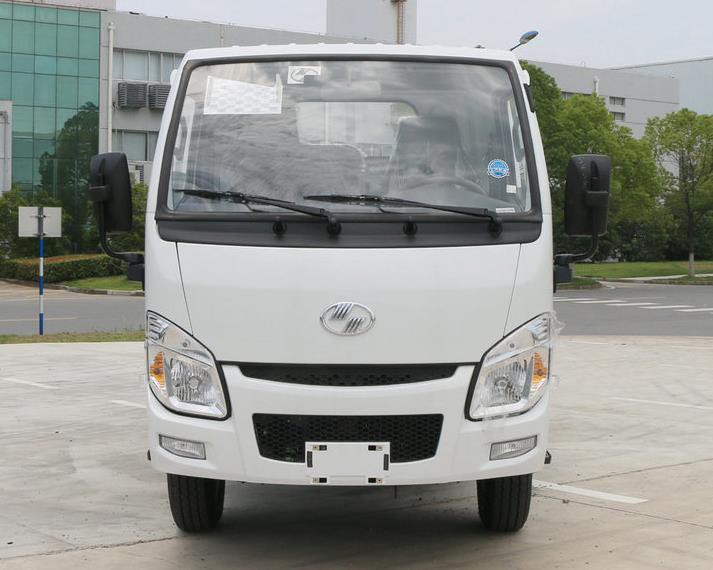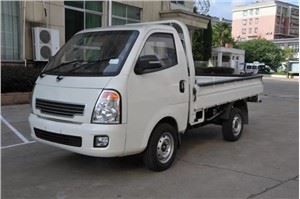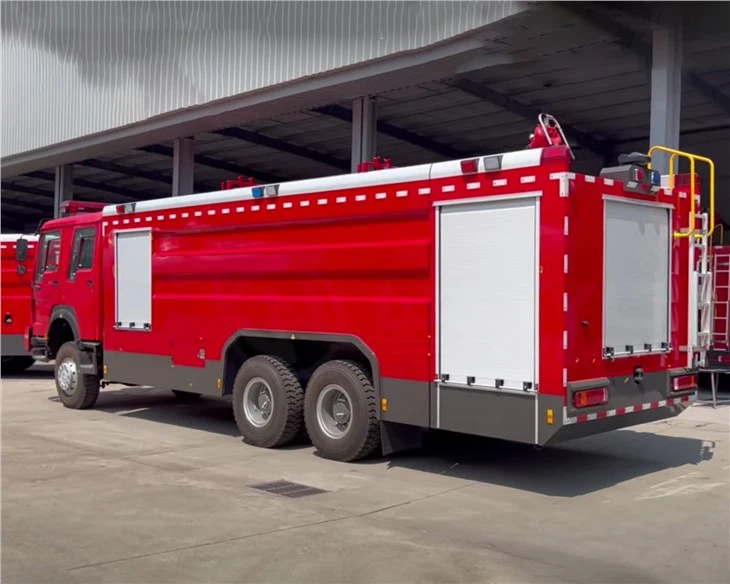Understanding Vacuum Loader Trucks: The Ultimate Guide

Introduction
Vacuum loader trucks are essential pieces of equipment in various industries, offering efficient waste removal and material handling solutions. These trucks combine the functions of a vacuum and a tank truck, creating a versatile tool for managing liquids, sludge, and dry materials. Whether you’re in construction, sewage management, or environmental services, understanding vacuum loader trucks is crucial for optimizing your operations. This article provides comprehensive insights into vacuum loader trucks, their applications, features, maintenance tips, and more.
What is a Vacuum Loader Truck?
A vacuum loader truck, often referred to as a vacuum truck, is specially designed for transporting and removing materials such as liquids, sludge, and other waste materials. They are equipped with a powerful vacuum system that creates suction to haul materials into a storage tank, making them invaluable in many sectors.
How Does a Vacuum Loader Truck Work?
The vacuum loader operates through a series of mechanisms:
- Vacuum Pump: Creates suction to draw materials into the tank.
- Hose and Tool Attachments: Various hoses and tools are used for different applications, allowing flexibility in operations.
- Tank: Stores the collected material, often built to handle both hazardous and non-hazardous waste.
Types of Vacuum Loader Trucks
1. Liquid Vacuum Trucks
These trucks are primarily used for extracting liquids, such as sewage or chemical waste. They often come equipped with additional features to handle corrosive materials safely.
2. Dry Vacuum Trucks
Dry vacuum trucks are tailored for transporting dry waste materials like sand, dust, and debris. They typically use pneumatic conveying systems for efficient operation.
3. Combination Vacuum Trucks
Combination trucks can handle both liquid and dry materials, making them versatile for operations requiring the transport of different waste types.
4. Hydro Excavation Trucks
These specialized vacuum trucks use high-pressure waterjets to excavate soil and debris. They are primarily used in utility works and safely locate underground utilities.
Applications of Vacuum Loader Trucks
1. Environmental Services
Vacuum loader trucks play a crucial role in environmental waste management, used for cleaning up hazardous spills, sewage services, and more.
2. Construction Sites
These trucks assist in excavation, debris removal, and site cleaning, enhancing the efficiency of construction projects.
3. Industrial Applications
Vacuum loaders are used in manufacturing facilities for collecting dust, shavings, and other by-products, helping maintain cleanliness and safety.
4. Municipal Services
Local governments utilize vacuum trucks for street cleaning and managing waste in public spaces, contributing to better urban sanitation.

Key Features of Vacuum Loader Trucks

1. Powerful Suction Mechanism
The effectiveness of a vacuum loader truck lies in its robust suction capabilities, allowing it to handle heavy-duty materials with ease.
2. Durable Construction
These trucks are built with high-quality materials that withstand corrosive substances and rough working environments.

3. Safety Features
Modern vacuum loaders are equipped with safety features, including shut-off valves and emergency alarms, ensuring safe operation during hazardous material handling.
4. Versatile Attachments
Options for varying hose lengths and suction tools make vacuum loader trucks adaptable for different job requirements.
Factors to Consider When Choosing a Vacuum Loader Truck
1. Type of Waste Material
Consider the kinds of materials you need to transport—liquids, solids, or sludges—to choose the right vacuum loader for your needs.
2. Truck Capacity
Choose a truck with an appropriate tank size that fits your operational demands without being overly large for your typical tasks.
3. Application Specifications
Identify whether you need a specialized truck, such as a hydro excavation truck, based on your work scope and industry requirements.
4. Maintenance and Support
Look for trucks from manufacturers that provide reliable warranties and support services, ensuring long-term operational efficiency.
Maintenance Tips for Vacuum Loader Trucks
1. Regular Inspections
Frequent evaluations of hoses, pumps, and tanks help identify issues before they lead to major repairs. Check for leaks or signs of wear.
2. Clean the Tank
After every use, clean the tank to prevent residue buildup. This practice maintains operational efficiency and ensures hygiene.
3. Ensure Proper Lubrication
Keep moving parts well-lubricated to enhance performance and decrease wear and tear on the vacuum system.
4. Service Schedule
A formal service schedule with a qualified technician can prolong the life of your vacuum loader truck, ensuring it remains in top condition for years.
Cost and Budgeting for Vacuum Loader Trucks
1. Purchase Costs
The price of vacuum loader trucks can vary widely depending on their type, features, and capacity. Budget properly to include additional expenses such as licensing and insurance.
2. Operating Costs
Factor fuel efficiency, repair costs, and maintenance into your operational budget to ensure long-term sustainability.
3. resale Value
Investing in quality vacuum loader trucks can yield higher resale values, providing great returns if you choose to upgrade your equipment later.
Future Trends in Vacuum Loader Trucks
As technology evolves, vacuum loader trucks are expected to incorporate more advanced features, such as greater automation and environmental responsiveness, making them increasingly efficient and safer for the operator and the environment.
FAQs about Vacuum Loader Trucks
1. What can a vacuum loader truck collect?
A vacuum loader truck can collect a variety of materials including wastewater, sludge, dry debris, and in some cases, hazardous materials.
2. How often should vacuum loader trucks be serviced?
It’s recommended to have vacuum loader trucks serviced at least once a year or more frequently if they are used heavily or under harsh conditions.
3. Are vacuum loaders safe to operate?
Yes, when used properly and maintained, vacuum loaders are safe. Operators should follow safety protocols and wear appropriate protective gear.
4. Can vacuum loader trucks be rented?
Yes, many companies offer vacuum loader trucks for rent, which can be a cost-effective solution for temporary projects or smaller operations.
5. What’s the difference between a vacuum truck and a vacuum loader truck?
A vacuum truck is a general term that refers to any truck that uses suction for collecting materials. Vacuum loader trucks are specifically designed to load materials into a tank, making them equipped for heavier tasks.
6. How do I choose the right vacuum loader truck for my needs?
Consider the type and amount of material you typically handle, your budget, and the specific features or attachments you may need for your operations.
